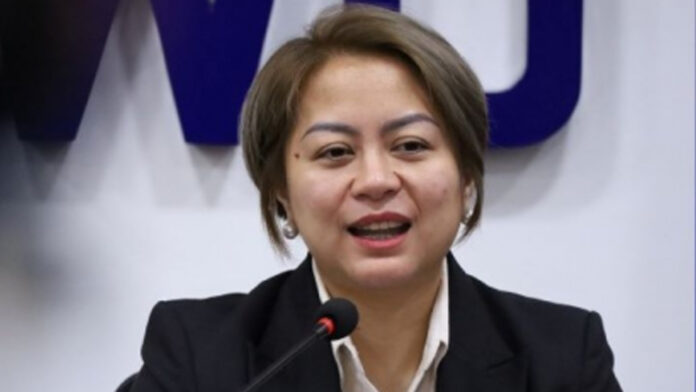A senior official of the Department of Social Welfare and Development (DSWD) on Tuesday highlighted the urgent need for a robust investment in anticipatory action, as well as science and technology for disaster risk reduction.
“Investments in anticipatory action in the Philippines have been considered using the social protection system. Recognizing anticipatory action as crucial for providing protection and mitigation, the Philippines, through the DSWD, worked with various partners to introduce anticipatory action in disaster risk reduction,” Disaster Response Management Group (DRMG) Assistant Secretary Irene Dumlao said.
Dumlao said the DSWD, in partnership with the United Nations Food and Agriculture Organization (UN-FAO), implements the Building on Social Protection for Anticipatory Action and Response in Emergencies and Disasters (B-SPARED) program that uses technology for risk information, impact-based forecasting, and early warning systems as trigger mechanisms.
“In its pilot implementation, the B-SPARED program aimed to address the impact of floods, typhoons, and drought through social safety nets and capacity-building activities,” she said.
During a panel discussion at the Asia-Pacific Ministerial Conference on Disaster Risk Reduction (APMCDRR) at the Philippine International Convention Center (PICC) on Oct. 16, Dumlao noted that the same strategy was used in the Central Emergency Response Fund (CERF) Anticipatory Action (AA), a program of the DSWD and United Nations Children’s Fund (UNICEF), where anticipatory cash assistance was provided to children residing in typhoon-prone provinces before the impact of a tropical cyclone.
During the same panel discussion, she also presented Project LAWA (Local Adaptation to Water Access) and BINHI (Breaking Insufficiency through Nutritious Harvest for the Impoverished), which leverage climate data to combat water scarcity and food insecurity, particularly during extreme dry spells.
She said a reliable social registry plays a crucial role in identifying the most vulnerable households, ensuring targeted interventions are effectively implemented.
“In fact, the Philippines, through the DSWD, utilizes the Listahanan or the National Targeting System for Poverty Reduction as a targeting tool to identify households most vulnerable to massive flooding, frequently visited by typhoons, and severely affected by drought for the implementation of B-SPARED, CERF, and LAWA and BINHI,” Dumlao pointed out.
She also recognized multi-sectoral collaboration as essential for the success of anticipatory action initiatives of the Department.
“Science-based forecasting and a reliable social registry fueled by multi-sector collaboration have worked well in implementing anticipatory action initiatives. These mechanisms have instigated meaningful collaborations to advance policy and funding support for scale-up opportunities,” she said.
This year’s APMCDRR was hosted by the Philippines that brought together government agencies; intergovernmental, international, and national civil society organizations; the private sector; science; academia; and stakeholder groups to provide a platform for regional collaboration in disaster risk reduction, and resilience-building. (PNA)






